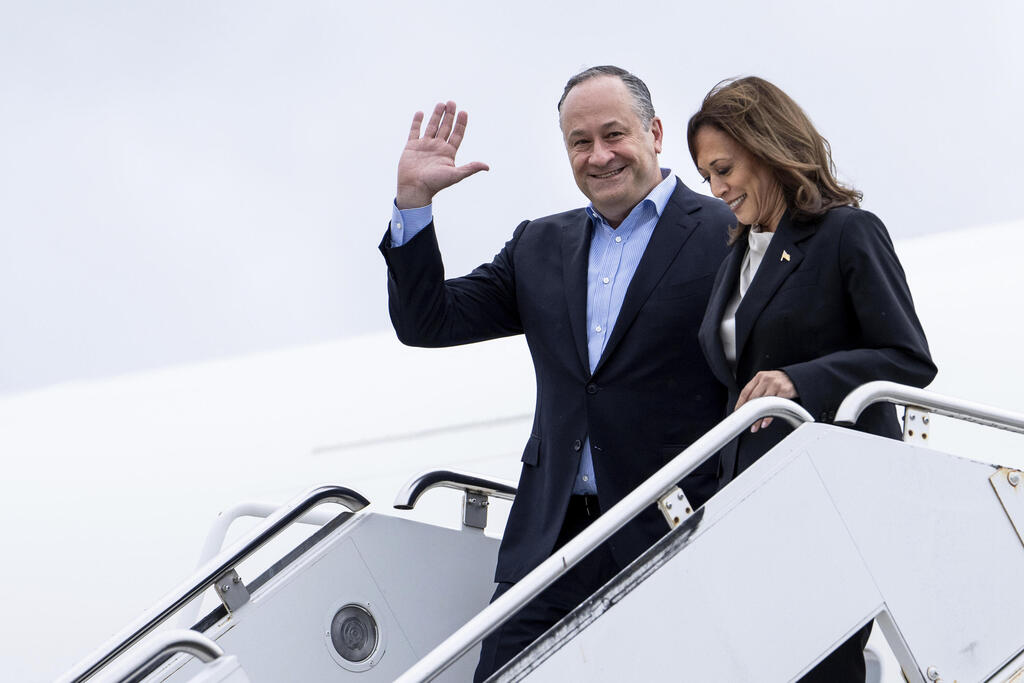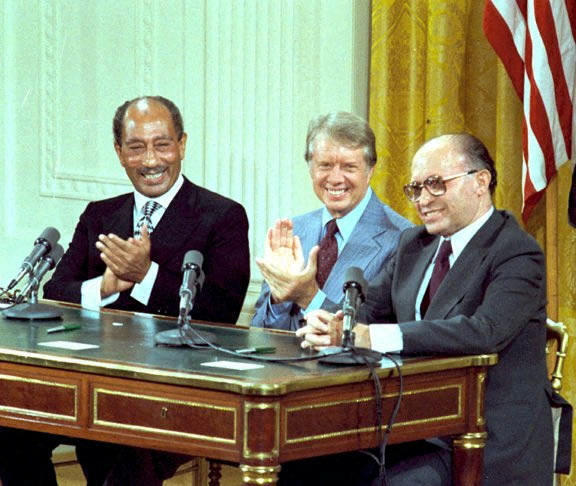Getting your Trinity Audio player ready...
During one of her first campaign rallies after becoming the Democratic presidential nominee, Kamala Harris encountered a familiar challenge for President Joe Biden since October 7: pro-Palestinian protesters disrupting her speech.
Biden struggled to handle such interruptions, attempting to balance allowing the protesters to voice their opinions while continuing his speeches, often appearing increasingly fatigued.
Harris, seemingly surprised by the interruption, allowed the protesters to shout briefly. However, when they didn’t stop, she shot them a stern look and said, "If you want Trump to win, keep it up. If not, I'm speaking now." The crowd responded enthusiastically, reflecting the frustration many Democrats feel with the ongoing focus on Middle East issues.
However, the fact that the rally was held in Michigan—a state with the largest Muslim population in the U.S.—could pose a challenge for Harris. On the other hand, the viral clip of her silencing the protesters might help her address another challenge inherited from Biden: securing the Jewish vote.
Earlier this summer, the White House hosted an emergency meeting with leaders of the American Jewish community on one side of the table and senior administration officials, including Homeland Security Secretary Alejandro Mayorkas and National Security Council spokesperson John Kirby, on the other. The administration aimed to update Jewish leaders on its efforts to combat rising antisemitism amid the war in Gaza and Washington’s support for Israel’s military campaign.
The meeting was tense. One participant protested the presence of a National Security Council staff member who, during his college years, had been part of Students for Justice in Palestine. Another repeated a rumor circulating on social media that a reference to antisemitism had been removed from Biden’s State of the Union address in March. Administration officials defended the staff member as a "professional" and dismissed the rumor as "completely false," but the atmosphere remained charged throughout the meeting.
The White House saw the need for such a meeting amid growing concerns that Biden's unwavering support for Israel was costing him critical support on the left, particularly among young, nonwhite voters and, most significantly, among Muslim Americans in Michigan—a key battleground state.
However, the possibility that Biden could also lose Jewish voters, who make up a significant enough portion of the electorate to swing elections in swing states like Pennsylvania, Michigan, Georgia, Wisconsin and Arizona, largely flew under the radar.
In 2020, Biden won these states by margins of less than 3%, with Jewish voters comprising 1% to 3% of the electorate. With the 2024 race expected to be close, these votes could be decisive.
Democratic lawmakers and voters have told American media this year that many Jewish voters feel "betrayed" by their progressive allies. Some even report a sense of "political homelessness." They believe the administration has not done enough to curb the surge of antisemitism on college campuses, and some think Biden—ironically, perhaps the last staunchly pro-Israel president the White House will see for the foreseeable future—is not supportive enough of Israel.
"I’ve had people ask me, 'How can a Jew vote for Democrats now?'" said Troy Zukowski, a senior Democratic Party activist in Michigan. "I’m not so worried about Jews voting for Trump, but I am concerned about those who might vote for a third-party candidate or just stay home."
This story is another example of how the October 7 terror attack and the ensuing war in Gaza have deeply impacted Joe Biden’s presidential campaign, putting him in a precarious position long before his catastrophic debate against Donald Trump.
In fact, it wouldn’t be far-fetched to say that the ripple effects of October 7 ultimately led to Biden withdrawing from the race: he lost too much of the Democratic base—due to both his advanced age and the Gaza war—that he had no chance of regaining it.
While Biden was still the favorite to win the election on October 6, nine months later, he was no longer the Democratic presidential candidate, largely due to events that occurred across the ocean.
Kamala Harris, for her part, was supposed to enter the campaign without the burden of the Gaza war that weighed so heavily on Biden. However, by choosing Tim Walz as her running mate over Jewish candidate Josh Shapiro, she found herself once again facing challenges with the Jewish community.
"The attack on Shapiro was antisemitic and despicable," said Beth Balsam, a New York public relations professional and loyal Democratic voter, referring to some Democrats' opposition to Shapiro, a pro-Israel candidate. "Now Harris needs to clarify that she hasn’t caved to those so-called progressives and that she will continue to stand against hate and support Israel."
Turning one's back on Israel has its cost
Concern over the Jewish vote is usually not a significant issue for a Democratic presidential candidate. Most American Jews are liberal, with a strong, historically rooted connection to the Democratic Party.
In the past, 90% of American Jews voted for Franklin Roosevelt, 82% for John F. Kennedy and 90% for Lyndon Johnson. Bill Clinton received 80%, Barack Obama 78% and Hillary Clinton 71% of the Jewish vote.
Despite representing only 2.4% of the U.S. population, Jews have a disproportionate influence in American society, including in politics, making their votes especially valuable to Democrats.
Recent polls suggest that while American Jews prioritize issues like abortion rights and the fight for democracy over Israel, they closely monitor the administration's actions toward Israel. Moreover, 81% of American Jews say they feel an emotional connection to Israel.
The narrative that U.S. policy toward Israel ranks low in Jewish voters' priorities does not always hold up. In 1976, Jimmy Carter received 71% of the Jewish vote, but despite brokering peace between Israel and Egypt, his perceived hostility toward Israel caused his Jewish support to plummet to 45% in 1980.
On the Republican side, President George H.W. Bush won 35% of the Jewish vote in 1988—a notable achievement. However, after refusing to guarantee loans to Israel to help absorb immigrants from the former Soviet Union, his Jewish support dropped to 11% in the next election. Both Carter and Bush were one-term presidents, possibly linked to their waning Jewish support.
Joe Biden received 68% of the Jewish vote in 2020, still a solid majority but less than previous Democratic candidates, and Kamala Harris would likely be eager to maintain that level of support.
The current political landscape offers Donald Trump a rare opportunity that no Republican candidate has had in decades. However, Trump often reminds liberal American Jews why many initially opposed him.
Each time Trump claims that Jews voting for Democrats are anti-Israel, he reinforces one of the most dangerous antisemitic tropes in the U.S.—the idea that American Jews' politics are dictated by Israel and that they have "dual loyalty." When Trump asserts that "any Jewish person who votes for a Democrat or Biden “needs their head checked," he alienates one of America's most politically engaged and intelligent voter groups.
7 View gallery


Harris and her husband Doug Emhoff
(Photo: Erin Schaff/The New York Times via AP, Pool)
The latest survey by the American Jewish Committee (AJC), conducted in June, indicates a status quo but also shows significant concern among Jews about rising antisemitism. Nearly all respondents (93%) said antisemitism in the U.S. is either a "very serious problem" (56%) or "somewhat of a problem" (37%), with only 7% saying it is not an issue. A majority of Jews (87%) believe that antisemitism in the U.S. has increased "significantly" (55%) or "somewhat" (33%) since October 7.
Kamala Harris, who is married to a Jewish man and observes Jewish holidays, will need to convince many once-loyal Democratic Jewish voters not to respond to their sense of political alienation by staying home on November 5.









